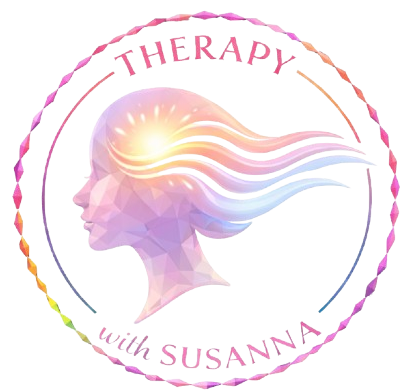
Understanding Anxiety: Causes, Symptoms, and Effective Coping Strategies March 16, 2025, 6:48 p.m.
What is Anxiety?
Anxiety is a normal and often necessary response to stress, preparing the body to react to potential threats. However, when anxiety becomes excessive or persistent, it can interfere with daily life, relationships, and overall well-being.
There are several types of anxiety disorders, including:
- Generalized Anxiety Disorder (GAD) – Persistent and excessive worry about everyday situations.
- Panic Disorder – Sudden episodes of intense fear, accompanied by physical symptoms such as a racing heart, sweating, and dizziness.
- Social Anxiety Disorder – Intense fear of being judged or embarrassed in social situations.
- Obsessive-Compulsive Disorder (OCD) – Uncontrollable, recurring thoughts (obsessions) and repetitive behaviors (compulsions).
- Post-Traumatic Stress Disorder (PTSD) – Severe anxiety following a traumatic event.
Common Symptoms of Anxiety
Anxiety affects both the mind and body. Some common symptoms include:
- Constant feelings of nervousness, worry, or fear
- Difficulty concentrating
- Restlessness or irritability
- Sleep disturbances, including insomnia
- Rapid heartbeat or shortness of breath
- Digestive issues, such as nausea or upset stomach
Effective Coping Strategies for Anxiety
-
Practice Mindfulness and Meditation
Deep breathing and mindfulness exercises help bring awareness to the present moment, reducing feelings of stress and worry. -
Challenge Negative Thoughts
Anxiety often stems from irrational fears. Identifying and challenging these thoughts can prevent them from spiraling out of control. -
Exercise Regularly
Physical activity helps regulate stress hormones and boosts endorphins, promoting a sense of well-being. -
Prioritize Sleep and Nutrition
Lack of sleep and poor diet can worsen anxiety. Aim for a balanced diet and consistent sleep schedule. -
Seek Professional Help
If anxiety interferes with daily life, therapy can provide effective coping strategies. Cognitive Behavioral Therapy (CBT) is one of the most effective treatments for anxiety disorders.
Anxiety is a manageable condition, and with the right tools and support, individuals can regain control over their thoughts and emotions.
Hear about the difference made
"I love to learn and i learn something new everyday. I leave my class felling happy and positive; The practical sessions are very helpful too"
- anonymous"Primarily its about the subject that am very interested in but also Susanna seems to have a joy for psychotherapy which is contagious, and i Enjoy the social aspect of the class with the other students. Everyone i have spoken to so far seems kind. The gentle place has fitted in around my existing work commitment"
- anonymous"I enjoy coming to the class because i find the lesson fun, practical and I'm really enjoying getting to know everyone on the course! I find your way of teaching very informative, and i like how we always have discussions and challenge each other's opinion and thoughts in a respectful way. I'm eager to learn more as the months go by and putting into practice what i learn and growing in confidence. Thank you Susanna for being a wonderful teacher"
- anonymous"Reason i enjoy coming to my class is that I have met some amazing people who I'm learning all the factors that come with counselling skills. My teacher Susanna is supportive and gives me practical strategies to use in my own life."
- anonymous"Susanna's class is more practical. I can listen to other people stories, opinions and thoughts that I am inspired by; on top of that, what i have learnt from my tutor is sensational that i've never been able to learn elsewhere. Therefore, I absolutely love coming to this class and I am so lucky to meet lovely people"
- anonymous"Thank you for creating a safe space which is allowing us to begin to express ourselves. You are so inspiring i think you are amazing too and look forward to next week's class & the rest of the course. I couldn't have asked for a better tutor!"
- anonymous"Classes are exciting! love the activities, made more friends, great vibes, learning new skills, building confidence, growing as a person, makes my happy, great impact in my personal life, value my self worth more and i look forward to helping others in the future. Feel really inspired by Susanna"
- anonymous"I love my classes, it is a safe and supportive environment. I really enjoy my class and look forward to Susanna's classes and all the conversations we have in the classes. I feel confident in class to open up"
- anonymous"I wanted to take the time to tell you that in many ways you've helped me as a person 2 live a better life through your passion, great teaching and your kind words Thank You for your honesty while teaching, sharing your experiences with your struggles with mental health when i was too afraid to share. You've created a safe and caring environment in that classroom"
- anonymous"I feel so inspired by our tutor and i can see myself counselling in the future. It has been good to meet other people and confidentially open up with some of my personal hardships. I did not envisage myself doing this and similarly, it has been a privilege to hear other people discuss their issues. I feel our tutor has created this space and allowed this to happen. It really has been great meeting you and having you as our tutor"
- anonymous"I cried, I journaled, I laughed, and I left with clarity. This was more than a workshop — it was a spiritual reset."
- Simone T"I learnt more about the black history and historical values. It helped me realise the suffering the black community has been through, as it brought me to tears."
- Heidi"This workshop gave me permission to feel again. I’ve been carrying so much pain silently, and today I felt seen, safe, and supported for the first time in a long time."
- Danielle A"I came in feeling broken. I’m leaving with hope. Thank you for creating a space where I could reconnect with myself and remember my worth."
- Amara B"The affirmations, the grounding exercises, the sisterhood — everything was just what my soul needed. I feel lighter and more empowered to keep healing."
- Shanice K"I’ve been to a lot of self-help events, but this was different. It was deep. It was real. It was tender and powerful all at once."
- Fatima R"The session on confidence unlocked something in me. For the first time, I spoke up without apologizing for who I am. That’s huge for me."
- Tasha L"I’ve been struggling with self-love for years. This workshop didn’t just talk about it — it gave me practical ways to start building it from the inside out."
- Elise M"Susanna, your authenticity is contagious. You reminded me that healing isn’t linear, but I’m allowed to take up space and thrive."
- Nia J"I came for empowerment and left with sisterhood. Thank you for building a space where Black women like me could show up fully and not feel judged."
- Charmaine D"I didn’t know how much I needed this until I sat in that circle. Thank you for helping me remember that I’m not alone in this journey."
- Lydia O"Enjoyed a range of different topics, personal perspectives and experiences. Learning about the historical trauma of the black community and how this is carried today."
- Sarah"I am pleased to provide a reference for Susanna's workshop on black identity in counselling. As a seasoned counselling lecturer with 27 years of experience, I was impressed by the quality and depth of this workshop. It was a reflective and challenging journey, exploring the complex issues of race, identity, and culture in therapy. Susanna's workshop encouraged participants to confront their biases, expand their perspectives, and embrace diversity in their practice. I highly recommend it to anyone who wants to grow personally and professionally as a counsellor. - Tommy Silver Director Brighter Teaching Academy"
- Tommy Silver"I learnt about something I was unsure about and felt uncomfortable talking about it. The open discussion made me realise that it is ok to talk about race and the lived experiences of the black community."
- Libby"Everything was so informative and insightful, learning what the black community have endured, how they have and still overcome challenges and how it has affected generations."
- Alislie"Very informative, Interesting and educated me on the historical trauma and black identity. Thank you."
- Roise"The history I really enjoyed I was also shocked as this was the first time hearing this and more so it is relevant to our time and counselling."
- Sufina"Learning about history and relating it to counselling Susanna is very Passionate and understanding which makes it very enjoyable to learn from her."
- Emma"Fantastic workshop I enjoyed everything, I reflected on past experiences and how we sometimes put things down to race instead of being brave enough to talk about it."
- Denise"I enjoyed the workshop every part, it made me glad for my experiences and I learnt about black inventors I never knew about. Thank you."
- Samantha"I enjoyed learning the background history and gained new insight into how racism can have an impact and how as therapists we must understand what our clients are going through."
- Harry"Interactive and Interesting subject, learnt the historical trauma a black person may carry and how that could affect the counselling room."
- Steve"I enjoyed learning about the personal perspectives of others. It was very interactive and made me feel comfortable and safe."
- Harvey"This workshop was interactive, interesting, informative and great personal perspectives. I learnt a lot."
- Bec"Excellent presentation and delivery, very passionate and enthusiastic. Learnt new information and found the personal stories very inspiring."
- Lynn"Had a chance to reflect and consider how discrimination and bias transcends all aspects of life and how important it is to be aware of this as a therapist."
- Felicity"Freedom to talk about everyone’s experiences, I gained insight to some history aspects I had no idea existed."
- Linda"Discovered new theorists that I did not know about, background knowledge on past slavery and how it has impacted the black community."
- Rita"Helped me understand the challenges and experiences of black people and how that may affect them in therapy."
- Ben"The openness of conversation, the impact of otherness throughout all aspects of life and how that presents in therapy."
- Jade"I enjoyed the interactive, the facts, history which I would not have known of others in the group being open and honest."
- Jadene"I saw things I knew about but did not know a black lady was behind it, such as the GPS. I learnt about how some struggles are still being felt."
- Amy"I enjoyed every part of this workshop. It was well throughout and well presented. I have learnt so much."
- Larna"Learning more about black history was interesting to see how much history has been hidden. Loved the fact that everyone had an opportunity to speak."
- Samantha H"Susanna’s enthusiasm when sharing knowledge and information and her humour shined through, which made the workshop engaging."
- Shabamon"It was incredibly informative but did not feel like a lecture or too academic. It was very real, which made me engage and connect more."
- Sophie"Completely blown away by the information that was given I was unaware of beforehand. It made me think about my own assumptions."
- Marcis"I thought it was educational. I learnt so much about black history that I had no idea about. I would highly recommend it."
- Hannah"After years of battling anxiety and self-doubt, I found solace in therapy with Susanna. Her empathetic approach and unwavering support provided a safe space for me to explore my feelings. Through our sessions, I learned practical coping strategies and gained a deeper understanding of myself. Today, I feel more confident and equipped to face life's challenges. Thank you, Susanna for guiding me through this journey, the world needs more people like you a beautiful soul inside and out May God keep blessing you"
- Anonymous"Navigating the complexities of personal relationships left me feeling overwhelmed and isolated. Seeking therapy with Susanna was the best decision. Her insightful guidance and compassionate listening helped me uncover patterns and build healthier connections. The journey wasn't easy, but with Susanna's professional support, l've experienced profound personal growth and renewed hope the whole time i was seeking for something that was within me. Thank you, Susanna for being there every step of the way, for helping me love myself again and value myself."
- Anonymous"Susanna has an incredible ability to hold space for others, honestly people need to understand the heaviness a therapist carries when navigating their own challenges, this takes incredible strength. She created a safe, compassionate environment where I feel truly heard and supported. It's easy to assume that therapists have everything figured out, but Susanna's authenticity and strength show that she understands life's struggles on a deep level. Her empathy isn't just professional—it's real, and that's what makes her the best therapist I have ever worked with."
- Anonymous"My sessions so far have been legendary. I cannot believe it has only been four sessions and I am feeling a difference. Since our session I have reduced my intake; now I am on my way to stopping. I have never spoken about my life to anyone in the past over 40 years. I am in awe. I am finding myself again. I am no longer seeking acceptance from people or a bottle. God had sent you into my life for a reason. Thank you."
- Anonymous"Two of the best and most important things I have ever did in my life were having my children and having therapy—a life changing experience. I have had therapy in the past but it has never worked until I started having sessions with Susanna. I think she is absolutely brilliant and I have looked forward to every single session. She made me see parts of myself I never seen before, explored my childhood, and I was able to identify where my addiction started. I could not have done this without Susanna. You truly have been sent to me from Christ. If everyone went to therapy and had a therapist like Susanna, the world would be a better place. Fantastic experience."
- Anonymous"Never had therapy in my life before and I didn't know what to expect but it completely surprised me. Having a safe place where you don't feel judged and to express yourself was truly a win. I was not in a good place after the death of my mother and experiencing depression and chronic work stress. Susanna helped me to get my life back on track, gave me strategies to use which has changed my life, found peace and acceptance. I am now a much calmer person, not angry anymore, and I am working on myself at a deeper level. Thank you for helping me find myself and helping other people. Highly recommend."
- Anonymous"I would never have imagined just three months after being a victim of domestic violence for 10 years that I would be feeling how I am feeling today. I feel empowered and I feel like day by day I am getting stronger and on my way to healing. My sessions with Susanna have changed my mindset and changed my life. She not only made me feel accepted but made me feel valued and listened. My cup was empty, now it is full. I simply can't thank Susanna enough for the impact she has had in my life and most importantly giving me the strength to start life again with my daughter."
- Anonymous"My sessions so far have been legendary. I cannot believe it has only been four sessions and I am feeling a difference. Since our session I have reduced my intake; now I am on my way to stopping. I have never spoken about my life to anyone in the past over 40 years. I am in awe. I am finding myself again. I am no longer seeking acceptance from people or a bottle. God had sent you into my life for a reason. Thank you."
- Anonymous"My sessions with Susanna have been amazing. She's helped me so much and she makes you feel safe and welcomed. Every session I've had I've looked forward to and wasn't anxious about because she makes you feel like you're in a safe place. She listens and understands and gives great feedback that I take on board and will continue to now that the sessions have ended. I've seen such an improvement in myself from my first session to my last and I thank Susanna for that. I couldn't recommend her enough because she truly is the best."
- Anonymous"Thank you for helping me save myself. I wish you all the best in everything you do. You truly are worth your weight in gold."
- Anonymous"Susanna was an amazing counsellor for me, I felt heard and seen. She gave guidance without judgement and helped me process my emotions when I wasn't sure how to. My feelings were always validated and I always left the session with a sense of relief. I feel I have left counselling with a shifted mindset and a better outlook on my life and I will always have Susanna to thank for that."
- Anonymous"Susanna was an amazing counsellor for me, I felt heard and seen. She gave guidance without judgement and helped me process my emotions when I wasn't sure how to. My feelings were always validated and I always left the session with a sense of relief. I feel I have left counselling with a shifted mindset and a better outlook on my life and I will always have Susanna to thank for that."
- Anonymous"Thank you sooo much for everything in abundance. I am just loving life right now."
- AnonymousTherapy With
Susanna
Empowering You To Live Your Life and Thrive
All Rights Reseved ©






